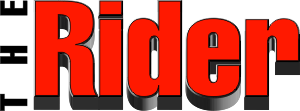
‘Ride that horse like a coffee table'
Sharon: Picture this. It’s 2017, September time; a nice fall day. You’ve been riding for years and reining for a few, previous coaches have focussed only on what the horse is doing and you are wondering how your riding ability is, thinking to yourself ‘can I actually help develop myself as a rider as well as develop the horse?’
 So you’re trying out a new coach, she observes you in silence as you ride. The silence is un-nerving; you may be used to a coach who starts talking at you to ‘pick the horse’s head up’ or ‘ask the horse to pick up the pace’ or ‘your horse is sucking back, push him’’ or ‘use more leg’.
So you’re trying out a new coach, she observes you in silence as you ride. The silence is un-nerving; you may be used to a coach who starts talking at you to ‘pick the horse’s head up’ or ‘ask the horse to pick up the pace’ or ‘your horse is sucking back, push him’’ or ‘use more leg’.
All of these of course are valid comments and I am sure coaches sometimes wish they had these things pre-recorded so they could just hit ‘play’. But often, the rider is not given an explanation of why ad wondering exactly what more leg will achieve.
And then this quiet coach says: ‘Ride that horse like a coffee table, not a 1980s wiggly coffee table but a nice, straight coffee table. Your horse is not straight, she’s wiggly’
The analogy struck me immediately as I looked down at my horse and saw yes, she was indeed wiggly.
And so began my relationship with Jen, first and foremost as my coach and also now my equine business partner in J&J Reining Inc.

Jen has a way of describing what she sees and what you need to do, in simple terms. I loved the coffee table analogy and another one she uses which I refer back to all the time – is imagine the horse is a motor boat, the engine is in the back – that’s where the power is.
Jen always explains the why.
We are both big believers in getting the foundations perfect, we often work on putting the horse in self-carriage. I learn something new every time I ride with Jen.
Jen: Frame vs self-carriage
I think a lot of people confuse frame and self-carriage for the same thing, but they have two very different meanings.
A horse can be in a correct frame but still be rigid if held there by stiff aids from the rider. Stiff aids restrict fluid movement in the horse. Under a balanced and soft rider, the horse can be in a correct frame with no rigidity and the rider will feel almost no resistance.
This is a horse with self-carriage, pushing from their hindquarters (this is why you may hear your coach/trainer telling you to use more leg!) The horse is light on the forehand and rounds from the withers through to the poll. Their jaw softens, their back widens and lengthens with a free, consistent, smooth rhythm in their stride. They will look happy!

Two tell-tale sign of a horse that has been ridden/trained in self-carriage are:
1. They will have a well-muscled topline. Their neck will be rounded & muscular, the withers will not be protruding but filled out, the back will not have an “A frame” look to it but will be flat with the tenderloin muscled up and their hindquarters will not be “slab sided” but will have a round muscle look to them.
2. They will be light on their feet. Often, we hear a horse with extremely heavy feet especially at a lope, this type of horse is not in self-carriage! The horse that is light on their feet will be much quieter and more apt to be in self-carriage.
There is nothing more intoxicating, thrilling, exhilarating then to feel a horse working under you in self-carriage!
Pro and Non-Pro articles written by Jen Jonas of Jonas Performance Horses (Pro) and Sharon Jones of Be A Better You (Non-Pro). Together, they are J&J Reining Inc. Both Jen and Sharon are believers in continual learning – if you’re not learning you’re not growing.


